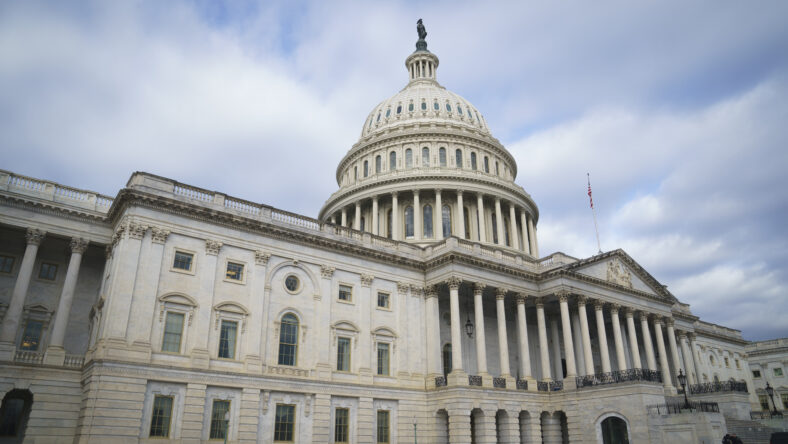NASA, Emmett Till & More, Here is Why Vanessa Bryant Has Justice on Her Side As She Heads to Trial Against L.A. County

This day, January 26th, is the anniversary of Kobe and Gianna Bryants’ deaths. As Vanessa Bryant bravely pursues her litigation against Los Angeles County and its Sheriff’s department for the taking and sharing of pictures of Kobe and Gianna Bryant’s remains, she has made it clear that her case is not about money. The heir to Kobe’s estimated $600 Million dollar estate wants accountability.
Bryant’s journey is well on its way toward a monumental conclusion as a trial has been set for February 22nd. A judge just recently denied Los Angeles County’s motion to dismiss the case. Vanessa wants a jury to hear about the emotional distress she has had to endure from the very knowledge that there are pictures out there of her husband and daughters remains. She says her biggest fear is that they will one day become public. She must live with that fear every day, and that’s the basis of her emotional distress claim in the litigation.
In response, L.A. County’s main argument is that the photos were never publicly disseminated and only passed around amongst a small group of people. Bryant estimates that the photos were shared on at least 28 different devices owned by members of the L.A. Sheriff’s Department and passed around by at least 12 county firefighters. Los Angeles County has callously put Bryant through painful depositions and compelled the release of her private therapy records to try to prove its premise that Bryant is emotionally distressed over the loss of her family members and not over the photos taken of their remains. The County has repeatedly said that her lawsuit has no merit.
Here is why L.A. County is 100% legally in the wrong and why Bryant’s lawsuit is so important for the public at large.
Vanessa Bryant has the law on her side
Rights to Privacy When Dead
Under federal law and state law, Vanessa Bryant has recognized and established legal rights over any images of her husband and daughter. In fact, by virtue of Kobe’s celebrity, Vanessa has stronger legal rights to those images than the average citizen. More on that later.
In general, family members have the right to control the dissemination of photos of their dead family members under the federal Due Process Clause, which is also applicable at the state level. In fact, since privacy rights generally die when a person dies, the right to control the images of dead relatives is a privacy right that belongs to Vanessa herself and Kobe’s living relatives. There are several historically significant cases that underscore the fact that courts always consider how the privacy of the family will be affected by the public release of photos of dead relatives.
The most famous case that comes to mind is that of Emmett Till, a 14-year-old African American boy who was lynched in Mississippi in 1955 after being accused of offending a white woman in her family’s grocery store. His mother Mamie, decided to make the photos of his brutal murder public. The decision was hers and hers alone. The photos turned into a rallying call for civil rights activists like Martin Luther King Jr. and Muhammad Ali and helped expose the cruel racial injustice and prompted a call to action.
In 1990, in a sharply divided decision, the D.C. Circuit Court of Appeals decided that NASA’s audio of the final moments before the space shuttle Challenger disaster qualified for privacy protection. The Court decided that the recordings fell under an exemption listed in the Freedom of Information Act, which sets out an analysis to decide when the release of recordings and images will not violate a living person’s privacy. The Court concluded that releasing those tapes would cause the living relatives of the deceased astronauts trauma and that the families’ privacy outweighed the public interest to hear the recordings.
There have been countless other cases that reinforce the legal rule that families do have legal protections against the dissemination of photos of their deceased relatives because their privacy comes into play. The cases underscores the legal rule that sharing such photos of remains does in fact cause emotional distress in living relatives of the dead.
Rights to Publicity for Dead Celebrities
On the state and federal level, while a right to privacy generally dies with a person, the right of publicity for a celebrity survives death. This refers to a celebrities’ right to control their image and the commercialization of their name, image and likeness for a certain amount of time after their death. Think about the estates of Marilyn Monroe or Michael Jackson, or any one of your favorite celebrities for that matter. Those estates continue to sell and control products, memorabilia and rights in and to their deceased relatives’ NIL. This publicity right does extinguish over time, but the amount of time that it survives is dependent on each state’s law.
Vanessa Has An Ironclad Case
So not only does Vanessa Bryant have her own legal privacy right to protect the collection and dissemination of images of her husband and daughters remains but she also inherited Kobe’s right to control his publicity, including, of course, images of himself, dead or alive.
Los Angeles County’s argument that the photos were not publicly disseminated because only a “handful” of people saw them is entirely baseless and a losing argument. Obviously, sharing photos amongst at least 28 police department employees and 12 county firefighters, plus all of the evidence from actual witnesses that the photos were shared at a bar and an awards gala would be plenty of evidence to prove public dissemination. In fact, the very taking of the photo without permission, or the dissemination to even one public person, constitutes an invasion of privacy for both Vanessa, Kobe and Gianna, per their legal rights to have control over those images.
After the incident, California enacted a law making it a crime for any first responder to take pictures of remains at a crime scene. While, this is an incredible legal reform that Bryant helped create, it would not protect her if the photos were eventually placed online or made public on a broader scale because it was not in effect at the time the pictures were taken. Laws do not operate retroactively.
Thus, Bryant’s emotional distress claim should absolutely be validated and compensated massively by a jury. There is a statutory prohibition on bringing legal claims after a certain number of years, called a statute of limitations. This means that if Bryant waited for the pictures to be released and then tried to sue for emotional distress, she could be time barred and her suit thrown out. Bryant’s fear that one day the pictures may be released to the general public falls squarely within the category of emotional distress.
Living with such a daily fear of what could happen can be terrorizing, especially in this digital age where it is so hard to get things taken off of the internet once they are put on. Fox Broadcaster Erin Andrews had her naked images uploaded millions of times, sometimes by untraceable people and existing on servers that did not have to legally comply with demands to take those photos or videos down due to federal laws that give some platforms immunity from suit. Andrews had to file a copyright to her nudeness and serve countless legal demands on whoever she could find to try to get the images removed through threats of legal action.
In Bryant’s eyes, the publicity and symbolism of a win would be monumental. A large jury award would be a major deterrent to anyone on a county salary ever trying to photograph a dead person’s remains again. The publicity associated with the Bryant family and this case are such a powerful vehicle to not only set a new precedent that protects generations of people to come, including the privacy of families suffering from tragedies, but also to reinforce the laws that already exist and are violated with little to no penalty. Plus, what Jury would not feel for Vanessa and what she has been through? First responders, sworn to protect and serve, adding an unnecessary layer of emotional distress to her already heartbreaking situation would pull at the heart strings of any decent person. Rest In Peace Kobe and Gianna.
If you found this interesting and learned a little something, please share it & follow me @amydashtv on social media channels for more. For more on why I think the Judge in this case made an inhumane error in ordering Bryant to hand over her personal therapy records. Check out this editorial below.
Judge in Vanessa Bryant Case Issues Offensive Ruling
Categorized:Breaking News LOJ Exclusives NBA Social Justice The Latest Top Stories



